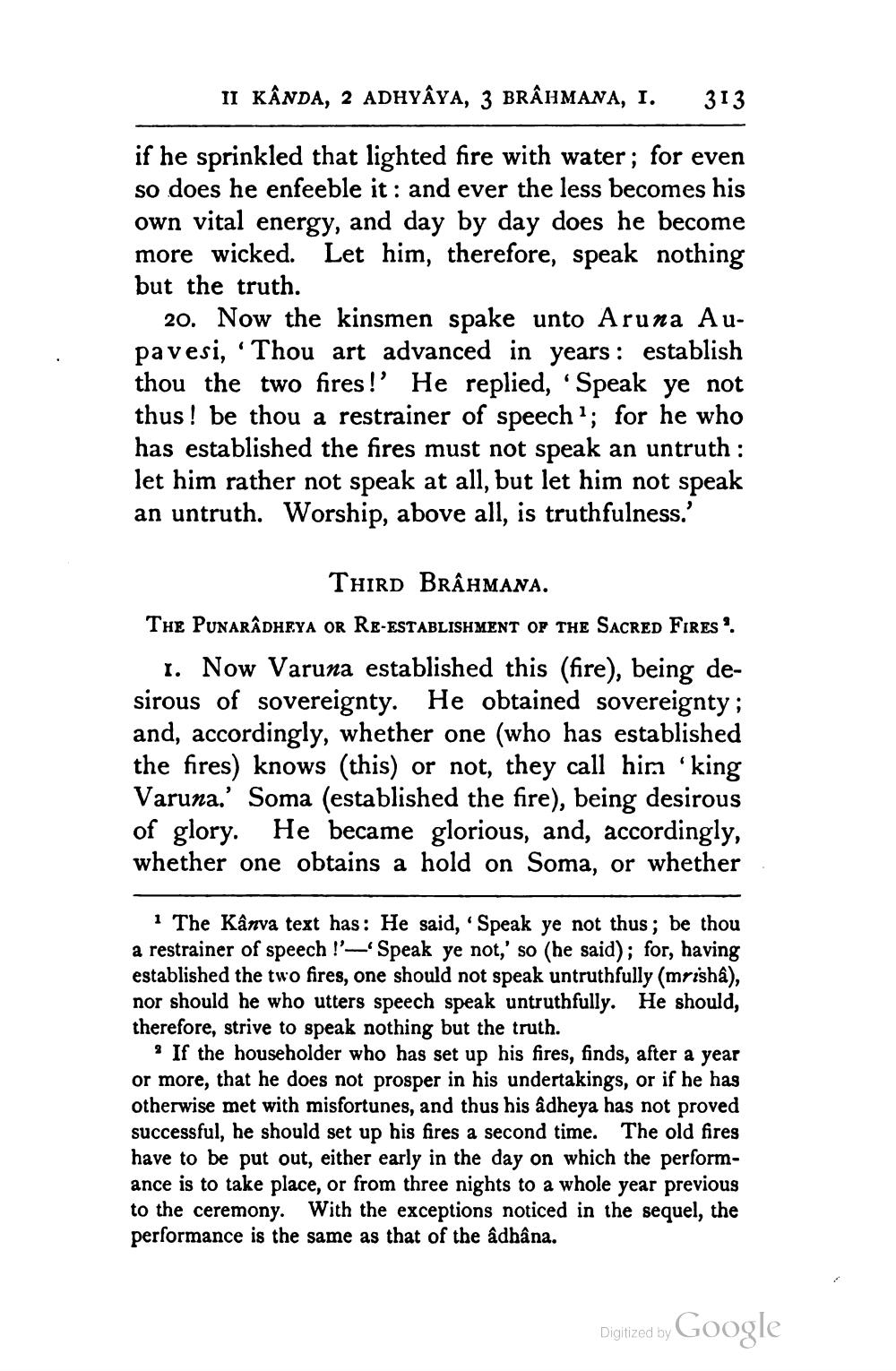________________
II KÂNDA, 2 ADHYÂYA, 3 BRÂHMANA, 1.
313
if he sprinkled that lighted fire with water; for even so does he enfeeble it: and ever the less becomes his own vital energy, and day by day does he become more wicked. Let him, therefore, speak nothing but the truth.
20. Now the kinsmen spake unto Aruna Aupavesi, ‘Thou art advanced in years : establish thou the two fires !' He replied, 'Speak ye not thus! be thou a restrainer of speech?; for he who has established the fires must not speak an untruth: let him rather not speak at all, but let him not speak an untruth. Worship, above all, is truthfulness.
THIRD BRÂHMANA. The PunarÂDHEYA OR RE-ESTABLISHMENT OF THE SACRED FIRES :
1. Now Varuna established this (fire), being desirous of sovereignty. He obtained sovereignty; and, accordingly, whether one (who has established the fires) knows (this) or not, they call him 'king Varuna.' Soma (established the fire), being desirous of glory. He became glorious, and, accordingly, whether one obtains a hold on Soma, or whether
i The Kânva text has: He said, Speak ye not thus; be thou a restrainer of speech !'- Speak ye not,' so (he said); for, having established the two fires, one should not speak untruthfully (mrisha), nor should he who utters speech speak untruthfully. He should, therefore, strive to speak nothing but the truth.
* If the householder who has set up his fires, finds, after a year or more, that he does not prosper in his undertakings, or if he has otherwise met with misfortunes, and thus his adheya has not proved successful, he should set up his fires a second time. The old fires have to be put out, either early in the day on which the performance is to take place, or from three nights to a whole year previous to the ceremony. With the exceptions noticed in the sequel, the performance is the same as that of the âdhâna.
Digitized by Google




